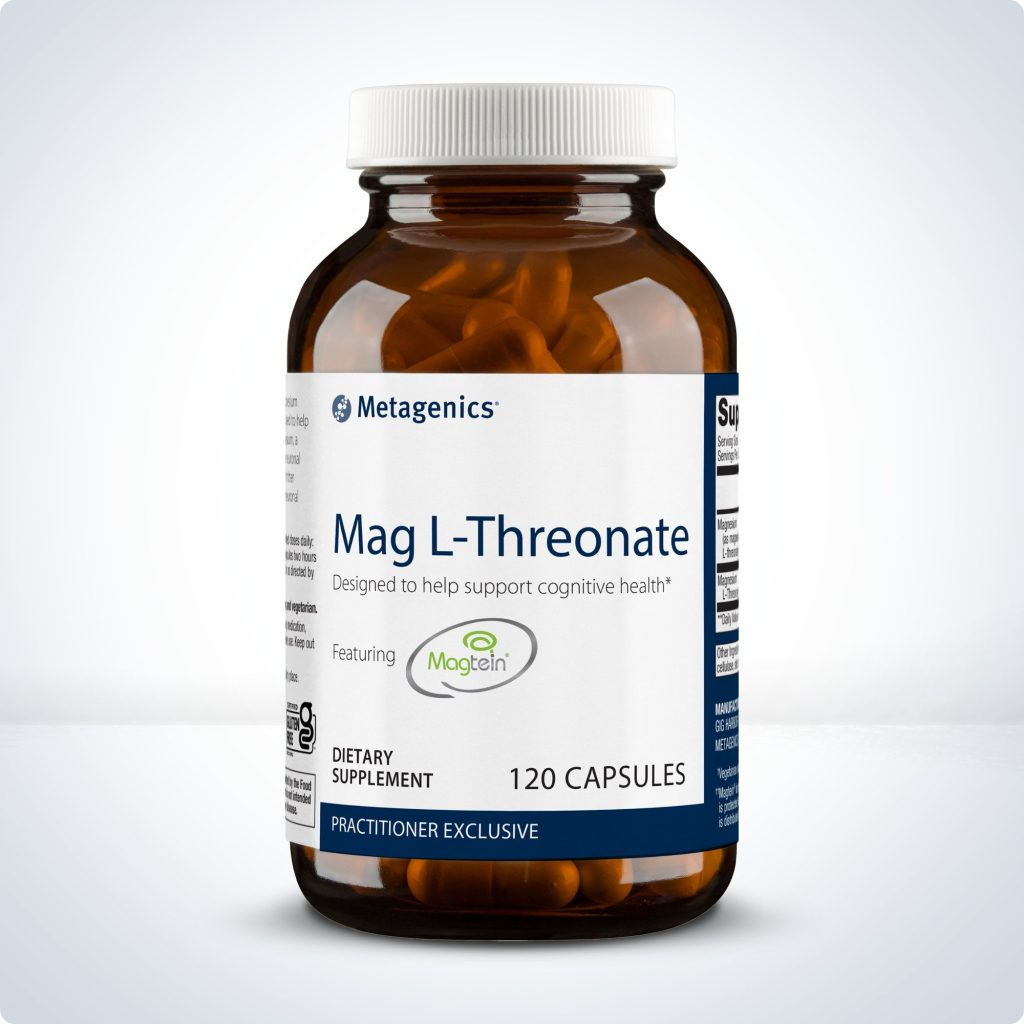Which Magnesium Supplement is Right for You?
You may have heard the benefits of taking a magnesium supplement, especially since the majority of Americans and those eating a standard western diet do not meet the daily recommended amount. Around 75% of people do not get enough magnesium in their diets and could benefit from a magnesium supplement.
However, there are many different types of magnesium supplements and it can be hard to understand which one best supports your wellness needs. Here are some of the most common and effective magnesium types on the market, and their unique benefits:

Magnesium Citrate
Magnesium citrate is the most common form of magnesium supplement. It is a magnesium salt composed of magnesium and citrate ions. Magnesium citrate supplements can help with arterial stiffness, reducing high blood pressure, and lowering high blood sugar levels. All of these benefits are important for general heart and cardiovascular health. Studies also show that taking daily magnesium citrate supplements can reduce the risk of heart disease by about 20%. Magnesium citrate can also be taken in the short term as a gentle natural laxative.
Magnesium Lactate
Magnesium Lactate is more bioavailable than magnesium citrate, meaning that it absorbs more easily and degrades less when passing through the intestinal system. It is a magnesium salt made of magnesium and lactic acid. It is also used to aid in cellular energy production as well as the whole body’s energy production which is essential for central nervous system and immune function. Magnesium lactate also supports bone health and increased density.
Magnesium Glycinate
Magnesium glycinate is essential in amino acid production and is present in foods rich in protein. It can help reduce muscle soreness and facilitates muscle contractions during exercise. It is composed of elemental magnesium and glycine, which is an amino acid. Studies show that glycine helps treat inflammation and diseases associated with it such as diabetes and heart disease.
Magnesium L-Threonate
Magnesium L-threonate is effective at combating stress levels and reducing anxiety. It can also function as a sleep aid, and helps in sleep maintenance (staying asleep throughout the whole night) as well. It is a magnesium salt composed of magnesium and threonic acid. Threonic acid is a product of Vitamin C breaking down. There is evidence to support magnesium threonate’s ability to cross the blood-brain barrier and its efficacy in managing memory loss and diseases like depression and Alzheimer’s.
Studies show that magnesium is essential for over 300 metabolic functions such as regulating blood pressure and managing energy production. In our fast paced modern lives, it can be incredibly hard and mentally taxing to focus on getting all our nutrients from food. This is where responsible supplementation can be really helpful. Hopefully this article helps you feel empowered to make informed and well researched decisions when it comes to nourishing your body, and the support systems we can use to fill in the gaps.
Sources
Hill, Ansley. “Types of Magnesium and Their Benefits.” Healthline, Healthline Media, 21 Nov. 2019, https://www.healthline.com/nutrition/magnesium-types.
Kubala, Jillian. “Magnesium Citrate: Benefits, Uses, Side Effects, and More.” Health, Health, 19 Mar. 2024, https://www.health.com/magnesium-citrate-8607721.
“Magnesium Lactate | Standard Process.” Nutritional Supplements & Whole Food Nutrition | Standard Process, https://www.standardprocess.com/products/magnesium-lactate. Accessed 2 Aug. 2024.









